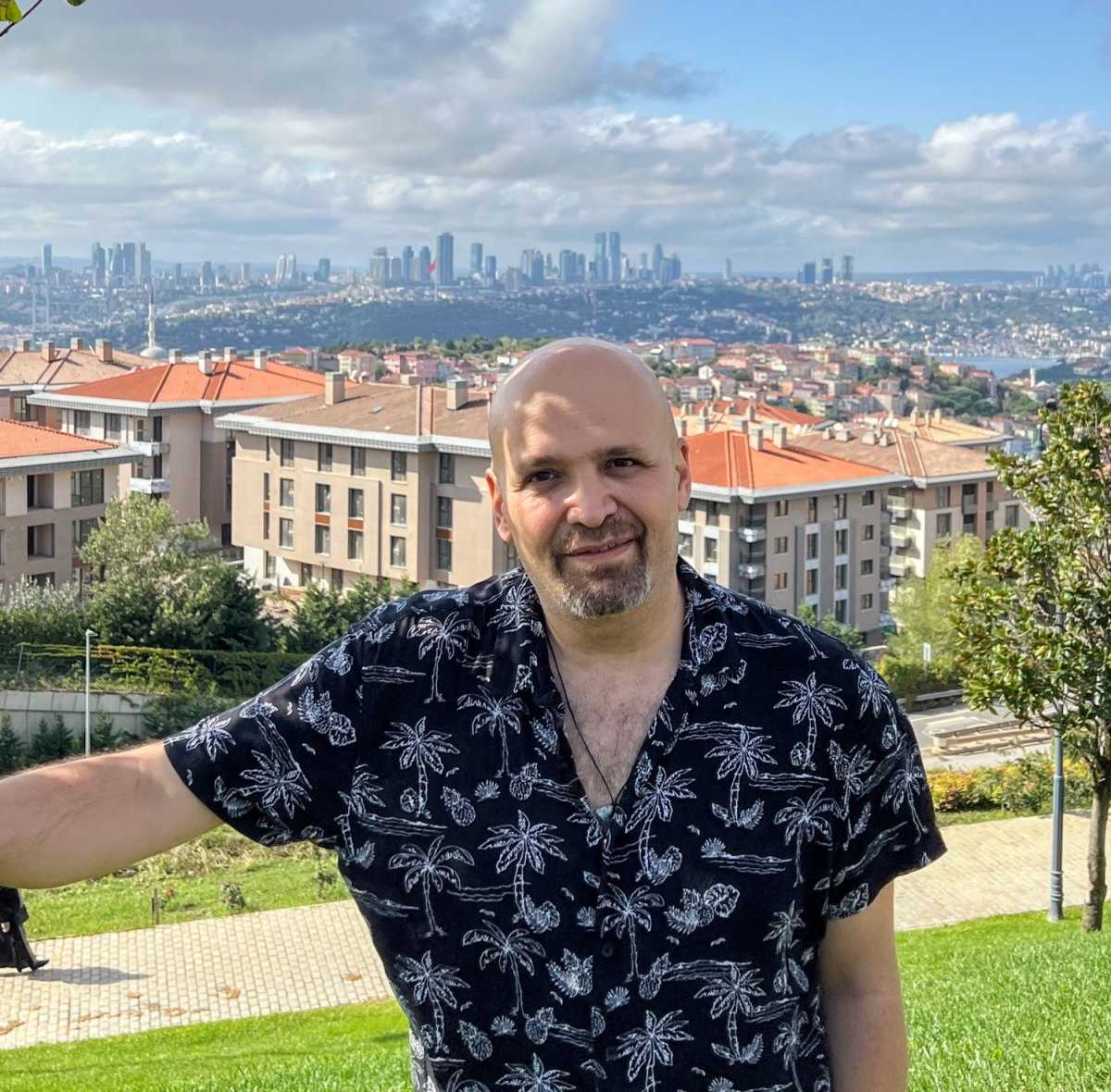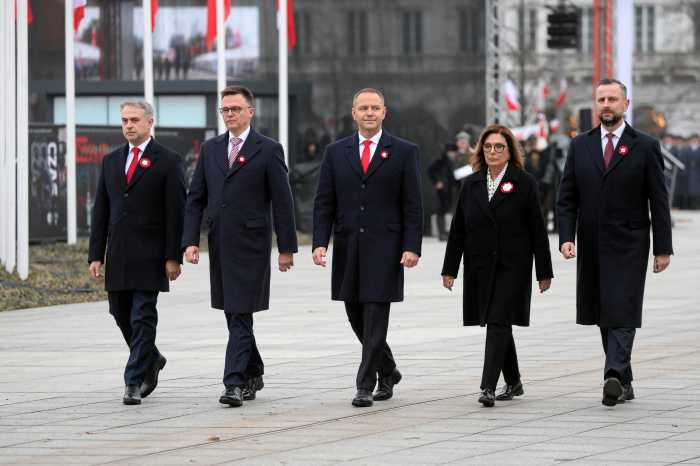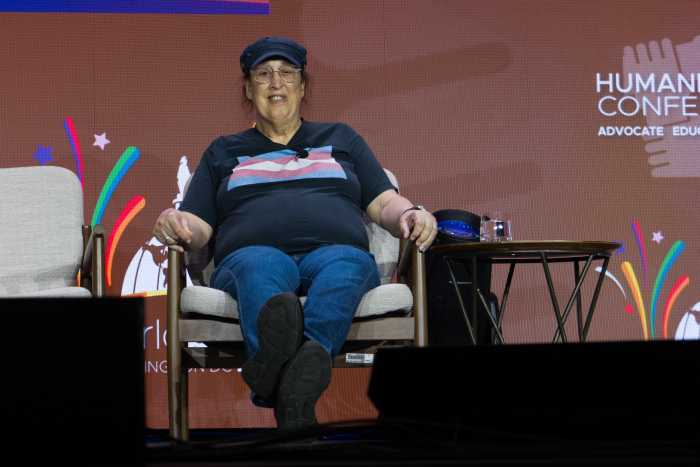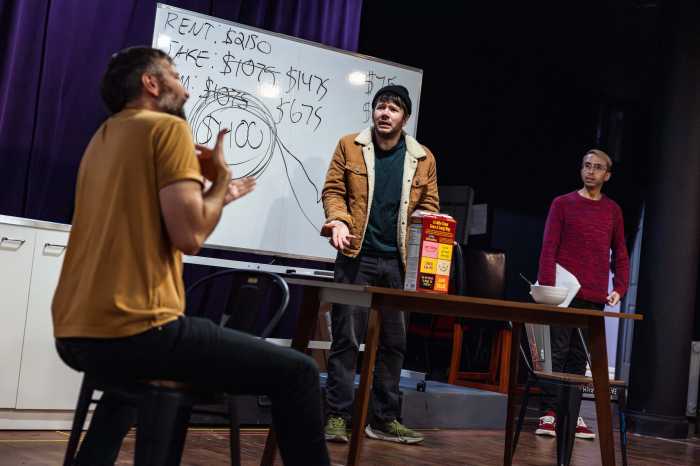Mahmoud Hassino, an award winning journalist and LGBTQ+ rights activist, is no stranger to turmoil. He was the force behind Mawaleh, an LGBTQ+-themed Syrian magazine; founded Mazaj, a gay Syrian travel website; and he worked on the 2017 film Mr. Gay Syria. He has also spoken with Gay City News before, at the beginning of Syria’s civil war.
In a recent Zoom from his home in Berlin, Hassino, 49, a German citizen since 2022, discussed the current turn of events: the ouster of the country’s dictator, Bashar Al-Assad, and the seeming takeover of the country by the Islamist group Hayat Tahrir Al Sham, led by Ahmed al-Sharaa, better known as Abu Mohammad al-Jolani, who is trying to present himself as a moderate to the West and unifier to Syrians.
The conversation covered Hassino’s current work with refugees and migrants with disabilities in Germany and the challenges faced by LGBTQ+ individuals in Syria, especially with the risks of religious extremism post-Assad. His worries include the potential for a situation similar to post-Saddam Iraq, where LGBTQ+ Iraqis were severely persecuted.
“When Bashar left, I was really happy,” Hassino told Gay City News. “I really didn’t imagine that I would see this.”
Making this all the more timely, Hassino said, was the tacit acceptance of Assad by Western governments who saw refugees from Syria and elsewhere as liabilities.
“Everything was going towards a rehabilitation of Assad, normalizing things because the right wing, they don’t want more refugees in Europe,” Hassino explained. Western governments, he said, thought, “Maybe if we strike a deal with Assad, we can send them back.’ The rest of the politicians, Greens and whatever a little bit left leaning, they also use the same rhetoric somehow that we need to deport more people.”
Still, he added, “it was something beyond imagination to think of Syria without Assad.” Yet, “it comes with a price. I mean, now we have the Hayat Tahrir Al Sham. They are like another version of Assad, with a Sunni twist. Assad claimed to be secular, but he wasn’t secular at all. But they don’t even claim that.”
Hayat Tahrir Al Sham, designated a terrorist group by the United States and other countries, has become Syria’s de facto government since Asssad’s ouster. While the situations remain unclear, things have the potential to be problematic for LGBTQ+ Syrians, similar to that of neighboring countries, like Iraq. Gay City News covered how LGBTQ people were intensely persecuted in a way Hassino fears might happen in Syria.
“I really don’t want what happened in Iraq to happen in Syria,” he said, pointing to “all these militias and the kill lists they publish, and all these things.” He published his magazine, Mawaleh, partly to help people become aware of these issues. He is thinking of reviving it now as a German non-profit.
Syria’s longstanding instability since the Arab Spring and the struggle against Assad, now combined with the potential for religious extremism, worries Hassino.
“Thirteen years of war and this whole destruction of most of the country. A similar situation would be more dangerous, catastrophic for gay people, for queer people,” he said, adding, “I want to keep my optimistic view all the time, but I always have Iraq in my head when I’m when I’m thinking about Syria.”
The interview brought up what Hassino called “a roller coaster of emotions,” both good and bad, including the death of his mother a few years ago and his inability to be home for her funeral.
At the same time, Hassino has regained contact with people who seemed to shun him, including unfriending or unfollowing on social media. For some of them, this was a way to protect themselves from the Syrian secret police under Assad who used social networks to track down people for actual and perceived dissident actions. Others were also in legal limbo and physical peril as refugees in other countries, afraid to reveal their sexuality.
One of those individuals told Hassino he should return to Syria now. According to Hassino, this person told him, “’It’s fine. Syria is for everybody,’ So, I really think it was also these hidden allies that you thought were scared because of their location, where they were.”
Yet Hassino has no illusions and knows it will be difficult to return to Syria while the country remains unstable. It is his very activism and public role as someone advocating for Syrian LGBT issues — whether through his writing, his magazine, or the movie Mr. Gay Syria, that leaves him too vulnerable.
“I really cannot go back to Syria,” he said. “I will not feel safe there.”
At least for now. Hassino might have fled Syria under difficult, dangerous circumstances in 2011, but he still expressed nostalgia for his old life. For example, he spoke of wanting to visit Cyprus to go “skydiving, because if you fly high enough, you will see the Syrian coast.”
While the last place he lived was Damascus, Hasssino told Gay City News, “I do miss Aleppo.” He mentioned a conversation with a friend where he asked him to take a photo of the Aleppo Castle.
“I just want to feel something of Aleppo just for me,” he said. “I do miss the streets of Aleppo. It is still the city I lived the most in” — for a total of 12 years. Still, he mentioned, “I do know though that where I lived in Aleppo is totally destroyed. It is all rubble.”
Despite the sadness and the unknown for all Syrians, Hassino wanted Americans to think about the resilience of LGBTQ+ Syrians, telling Gay City News, “If we think about the word gay, in English as a word, gay originally is happy, and it was like full of life.”
He said this was why he did a film like Mr. Gay Syria, “just to show this resilience, to life. We Syrians are resilient.” He gave a recent example of demonstrations in Berlin where an older Syrian woman was among the protestors, and several gay friends met with him. They danced exuberantly, and were open about their sexuality, just demonstrating “the joy they brought with them.” The old woman he said told them, “let’s go to Syria and do this!”
“This is what I remember about Syria,” he said. “I would walk, and there was this happiness with gay people there. Even with the regime, they attacked us, but we managed, we had parties, and so what I want people to know is that for queer Syrians, life was happening, and nobody could take away our joy of life. We managed to grab it somehow.”
Hassino went on to comment, “with or without Al Jolani, Syria will be the gayest place in the world.”




































